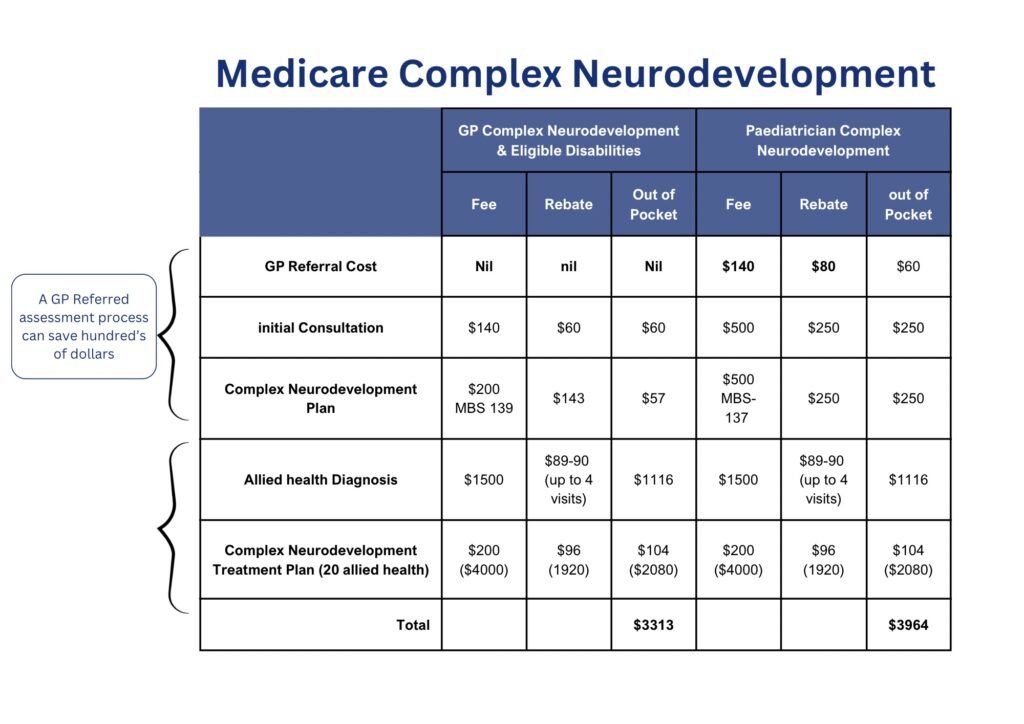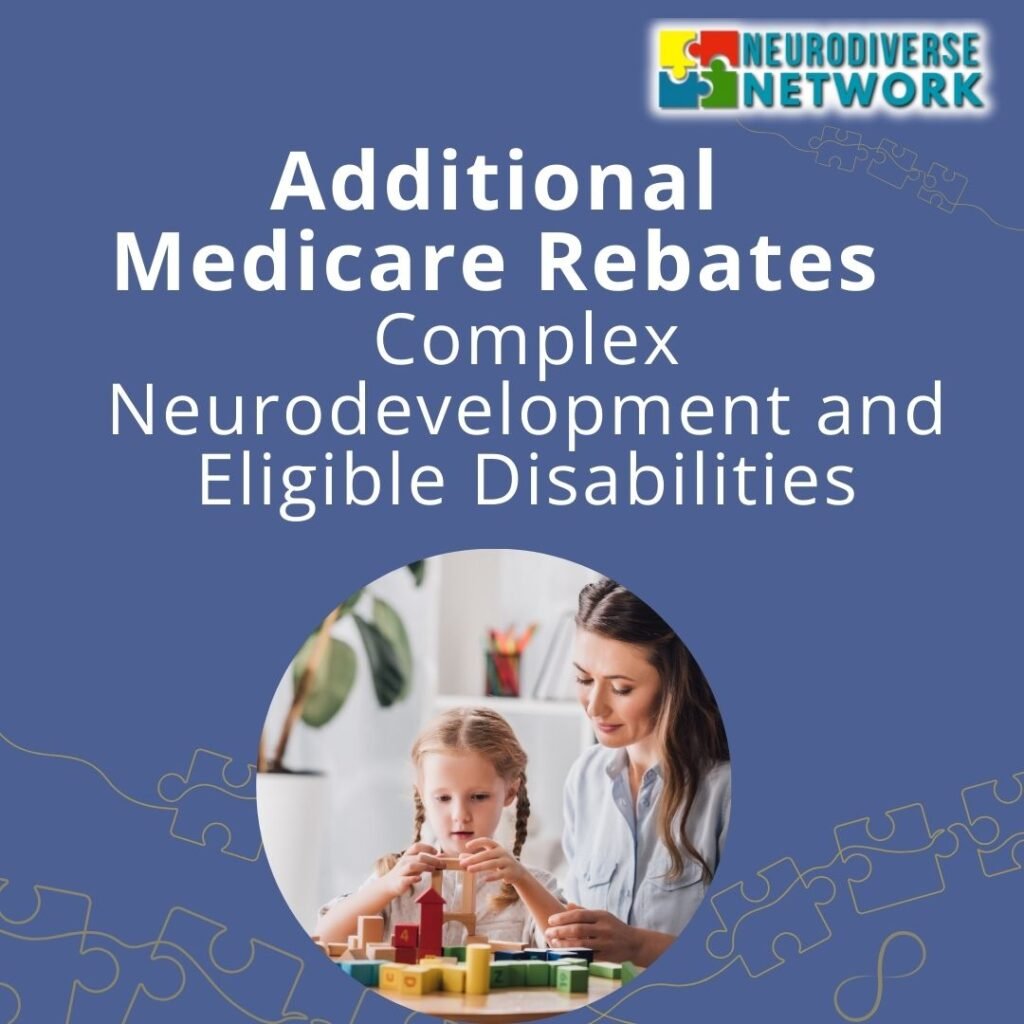Medicare Complex Neurodevelopment Disorders
In 2023 Medicare made changes that enabled families better access to funding to support a diagnosis of complex neurodevelopment disorders by allowing General Practitioner’s (GP’s) and Paediatrician’s to refer parents to multiple allied health professional’s to support the diagnosis process. Underpinning these changes were:
- Abolishment of the Helping Children with Autism Program. This program had previously provided $6,000 for children under the age of 13 to seek a diagnosis of Autism. MBS Item numbers 137 and 139 how now replaced this.1
- Early Childhood Early Intervention funding was transitioned to the NDIS Early Intervention program for children under of 7.
The public health care system in Australia is complex and unfortunately due to many social, political and economic variables, access pathways for therapy and intervention can become costly, especially if your child is past the age of 7. Whilst this change is a great move forward, access to these additional rebates can be hindered if your GP has not retained up to date knowledge of Child Development Disorders and the diagnosis and billing opportunities available via medicare.
How are Autism and Complex Neurodevelopment Disorders diagnosed?
A National Guideline for Autism Diagnosis has been published in Australia and either a GP Or a Paediatrician can trigger the diagnostic pathway. However of note, to qualify for NDIS, a diagnosis is not required by a paediatrician in fact, an allied health assessment (e.g. Psychologist) can be sufficient to apply for NDIS. From my personal experience, my child was diagnosed with Autism following:
- Initial diagnosis of ADHD when she was 6.5 years old
- Referral from our paediatrician for an Educational Assessment and Autism Diagnosis
If your child is under the age of 6, they can seek access to a range of allied health supports if a development delay has been identified, this funding may support you in accessing a diagnosis. Unfortunately, if your child is over the age of 6, you will require a diagnosis before you can consider NDIS eligibility and funding.
Benefits of Medicare’s Complex Neurodevelopment Disorder Process
There are significant cost savings to patients through these changes including:
- Once in a lifetime access to 20 allied health services with rebates of $96 +/- per service following a diagnosis
- Up to 4 assessment services available to patients to assist in the diagnosis.
- Ability for a GP to create a plan (MBS 139) and Paediatrician’s (MBS 137)
To put some context around this, there is the potential for patients to save hundred’s of dollars in the process of getting a diagnosis as a GP can refer a patient to allied heath services (eg. Psychology) for a diagnosis. Additionally, if you are struggling to get an appointment with a paediatrician, you can save hundred’s of dollars up front as you won’t require a referral or ‘paediatrician consultation fees’ up front.
So why aren’t we using Complex Neurodevelopment Services?
From my observations, it appears that ‘politics’ is the reason these plans aren’t being accessed, in fact since these changes came into effect, the MBS 139 code has only been used 200 times in Australia. My thoughts as to why these aren’t more widely communicated or utilised include::
- GP’s are only entitled to $148 rebate for using MBS 139 compared to Paediatrician’s being able to use MBS 137 and receive $248 from medicare. I have found commentary online from GP’s complaining that they are doing the ‘same work but short changed by medicare’
- It is quicker and more cost efficient for a GP to create a ‘Chronic Conditions Plan’ which entitles a patient to 4 services with a rebate of $65 / service. A refreshed plan for additional services would trigger an additional consultation to the doctor (and more rebates).
The below table provides a comparison (using average approximate fees i have found online), that indicates the rebates available and potential benefits to patients.

So what to do?
If you suspect your child has a complex neurodevelopment diagnosis,, or you have received a confirmed diagnosis, request your GP use MBS 139 to provide you with additional rebates to support your child. If you are waiting for NDIS, still request this funding as you can use it whilst you await a decision and plan from the NDIS.
If your GP refuses to activate this plan, challenge them and quote the MBS Item. Unfortunately this appears to be a problem with ‘Greed’ and petty politics as opposed to supporting our children to get the help they need.
Conclusion
Understanding and utilizing these specific Medicare item numbers can make a significant difference in managing your child’s complex neurodevelopmental needs. By being informed and proactive, you can ensure that your child receives the best possible care and support, easing the financial burden on your family.
For more information on these and other relevant MBS item numbers, visit the Medicare Benefits Schedule Online.
